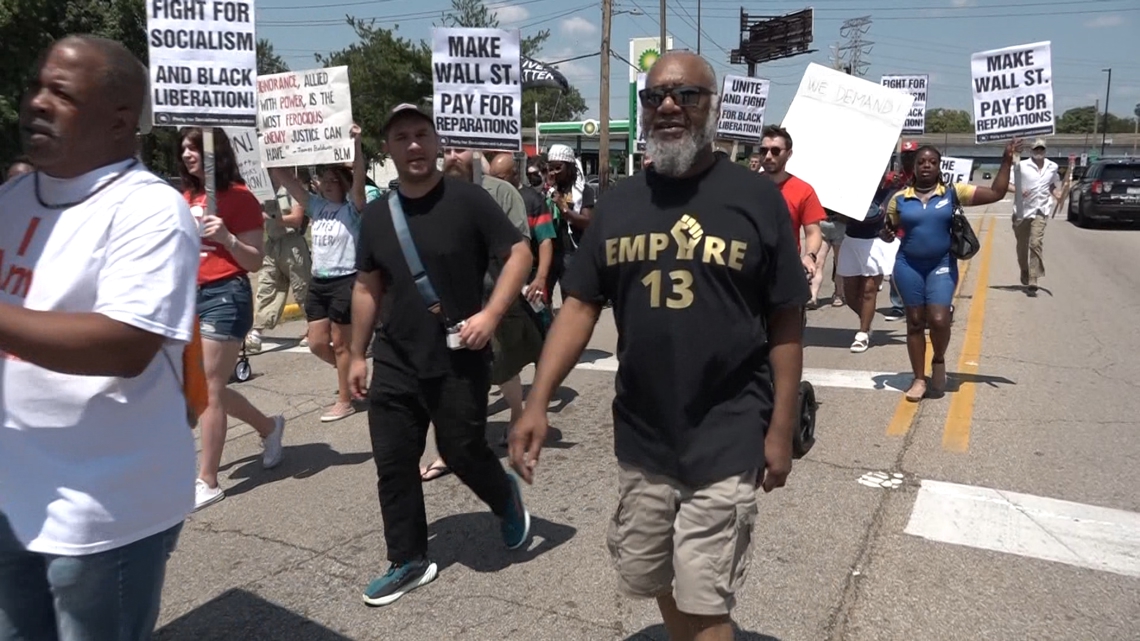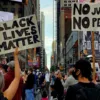
The city still has dilapidated areas from the mob that swept through more than a century ago, killing hundreds and causing economic damage.
EAST ST. LOUIS, Ill. — “What do we want? Justice!” A familiar chant echoed loudly through East St. Louis on Saturday.
Several groups showed up to City Hall for social justice organization Empire 13‘s 3rd Annual Reparations Now March For Justice to honor the lives lost in the 1917 race massacre that put a stain on the town known as “The City of Champions.”
JD Dixon, Empire 13’s founder and area native led the line to bring light to both historical and what he feels are more recent injustices.
His group often eyes environmental problems and hosts cleanups throughout the area.
“When I walk down the streets of East St Louis, I see the trash, I see the buildup of illegal dumping sites, debris, furniture, burned down buildings. Just the state of our city. It impacts me on a very personal level,” he said.
Members of Empire 13, NAACP, the Illinois African Descent-Citizens Reparations Commission, the Party of Socialism Liberation, and other citizens walked for a historical wrong in the city.
For several days, the city was disrupted by drive-by shootings, beatings, and arson targeting the Black community after a rumor spread of a Black man killing a white man in July 1917.
In a matter of days, a handful of white people and hundreds of African Americans died and nearly a half million dollars in property damage.
Stephanie Taylor who joined the march was still fired up from Juneteenth, leading reparation work on a state level.
“This is about systems. These are inequitable systems and outdated systems. I am here to stand and say historical disparities, economic disparities is something that is on the table here in the state of Illinois,” the Vice Chairman and Commissioner of the Illinois African Descent-Citizens Reparations Commission said.
Christian Winters and his family with the Party for Socialism and Liberation were there for the united front.
“Racism is a tool used to divide the working class and when the working class is divided, it’s much harder to fight for better working conditions. better housing. All sorts of issues so it’s really key for workers of any race of any background to show up together,” he said.
The citizens called to end racism and increase fairness and financial freedom in the Black community.
“In order to bring change, we have to elevate those voices to be the change,” Dixon said.
The African Descent-Citizens Reparations Commission, a group that ask citizens to come together to understand the historical significance of inequities in the area, will meet at the East St. Louis High School auditorium on Aug. 10 from 10 a.m.-12 p.m.
In 2021, Evanston, Illinois, a suburb of Chicago became the first U.S. city to make the reparations available to its Black residents for past discrimination and impacts of slavery.
Residents are required to have lived in the town for a certain period and suffered discrimination in housing because of city ordinances, policies or practices.
Other top stories


